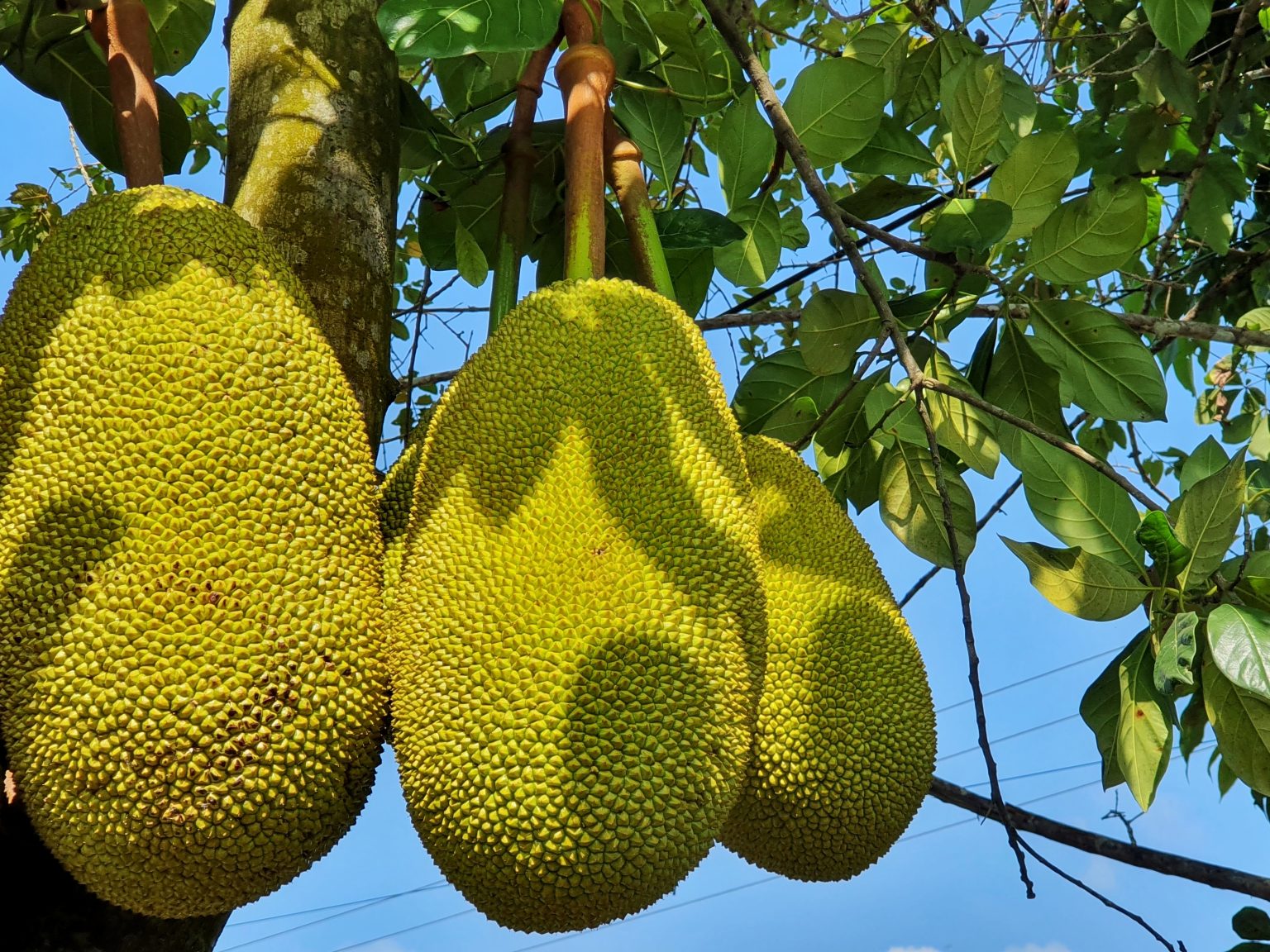Jackfruit Day, celebrated on July 4, shines a spotlight on one of the most unique and versatile fruits out there. Known for its impressive size and spiky exterior, jackfruit is not only the national fruit of Bangladesh and Sri Lanka, but also holds cultural significance in regions of South and South-East Asia, such as Tamil Nadu and Kerala in India. This day, established in 2016, aims to raise awareness about the myriad uses of jackfruit, from culinary delights to its role as a meat substitute for plant-based diets.
Jackfruit boasts a rich nutritional profile, packed with vitamins and antioxidants that make it a valuable addition to any diet. Unripe jackfruit is often incorporated into hearty curries, while its ripe counterpart can be enjoyed raw, offering a sweet flavour that appeals to many. Its fibrous texture makes it a popular alternative to meat, especially in dishes like pulled jackfruit, which mimics the taste and texture of pulled pork.
Beyond its dietary benefits, Jackfruit Day also serves to celebrate and educate people about the cultural importance of this remarkable fruit. With its deep roots in South and South-East Asian traditions, jackfruit has been a staple for generations, providing sustenance and delight across various cuisines. By celebrating Jackfruit Day, we are reminded of the fruit’s versatile nature and its growing popularity worldwide.
History and Significance of Jackfruit Day
Jackfruit Day celebrates the unique and versatile jackfruit, which is native to South and Southeast Asia. This special day highlights the fruit’s cultural significance, historical journey, and its role in modern culinary practices.
Origins and Global Influence
Jackfruit Day was first celebrated in 2016 to promote awareness about the jackfruit. While the exact origins of the fruit are not fully known, it is generally believed to be indigenous to the Western Ghats of India.
Portuguese colonial records, particularly those of Garcia da Orta, mention jackfruit, indicating its significance in early trade routes. With colonialism, the fruit spread to other parts of Asia and the Americas.
It is now majorly produced in countries like India and Sri Lanka, but attempts have been made to cultivate it in regions with suitable climates worldwide.
Celebration Practices and Awareness
Celebration of Jackfruit Day revolves around showcasing the fruit’s versatility. Cooking demonstrations, recipes, and cultural events highlight the many ways jackfruit can be used in dishes. This includes both vegetarian and meat-alternative recipes, given its texture when unripe and sweetness when ripe.
People often share recipes on social media and participate in community festivals. These events also aim to raise awareness about the nutritional benefits of the fruit, which is high in vitamins and antioxidants, making it a healthy addition to any diet.
Cultural Importance in Indigenous Regions
In regions like India and Sri Lanka, jackfruit holds significant cultural value. It has been a staple in diets for centuries and features prominently in traditional dishes. The fruit’s versatility allows it to be used in a range of culinary applications, from curries to desserts.
Apart from its culinary uses, jackfruit trees are also valued for their wood, which is used in making furniture and musical instruments. The fruit is celebrated not only for its unique taste but also for its contributions to the local economy and traditional practices.
Jackfruit as a Culinary Delight
Jackfruit, a versatile tropical fruit, is celebrated for its rich nutritional profile and adaptability in various cuisines. This section explores its health benefits and diverse culinary applications across different cultures.
Nutritional Profile and Health Benefits
Jackfruit is a nutrient-rich fruit, high in vitamins like Vitamin C, potassium, and magnesium. It also contains significant amounts of dietary fibre, protein, and antioxidants. These nutrients contribute to various health benefits.
The fibre content aids digestion and promotes a healthy gut. Vitamin C boosts the immune system and helps in the absorption of iron. Potassium supports heart health by regulating blood pressure. Furthermore, the antioxidants in jackfruit protect cells from damage and reduce the risk of chronic diseases.
Culinary Uses Across Cultures
Jackfruit’s versatility makes it a favourite in many cuisines, especially among those on a plant-based diet. It can be used when ripe or unripe.
Unripe jackfruit is often used as a meat substitute because of its texture. It is popular in savoury dishes like curries, jackfruit biryani, and stews. Its mild flavour allows it to absorb spices and seasonings well.
Ripe jackfruit is naturally sweet and can be enjoyed as a dessert. It is used in jams, pickles, and even ice cream. The culinary diversity of jackfruit makes it a delightful addition to both sweet and savoury recipes.



